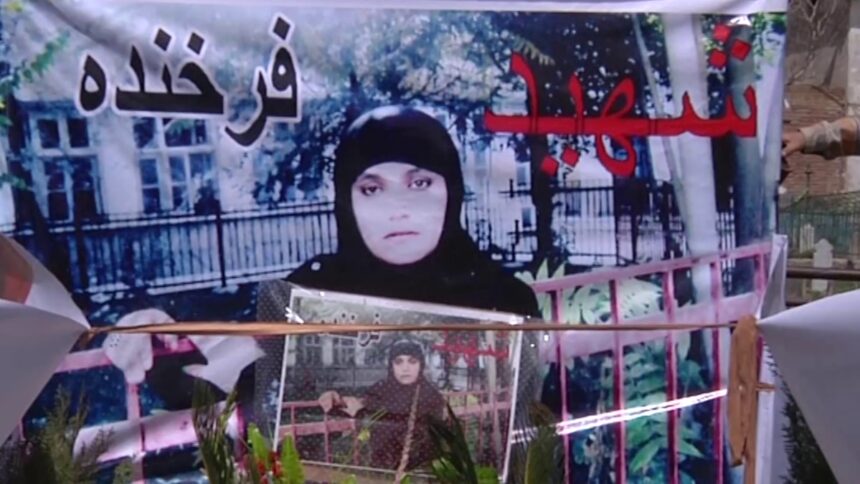RASC News Agency: Ten years have passed since the brutal lynching of Farkhunda Malikzada, a young Afghanistani woman who was beaten to death by an enraged mob near the Shah-Do Shamshira shrine in Kabul. On this somber anniversary, many social media users have reflected on her senseless murder, describing it as an enduring symbol of ignorance, injustice, and the oppression of women in Afghanistan. Farkhunda was falsely accused of burning the Quran on March 18, 2015 (28 Hoot 1393), a baseless allegation that led to her horrific public execution. Her brutal killing sparked nationwide outrage, igniting protests and calls for justice.
One social media user, Aminullah, wrote: “Farkhunda’s story has become a voice of resistance and freedom, echoing through every street of Kabul and in the hearts of those who seek justice.” He emphasized that Farkhunda’s name now represents the countless women who have fallen victim to religious extremism, mob violence, and systemic misogyny in Afghanistan. On that fateful day, a local cleric falsely accused her of burning the Quran, inciting an angry mob to unleash an unspeakable act of brutality. She was mercilessly beaten, dragged through the streets, and ultimately set on fire. However, subsequent investigations revealed that she had merely burned a cleric’s talismanic amulet not the Quran.
Another social media user, Asadullah, called her murder “a permanent stain of ignorance on the conscience of Afghanistani society”, urging, “This should not be reduced to a mere news report or an annual commemoration this tragedy demands deep reflection on the brutality and fanaticism that still threaten our country.” Many activists have pointed out that Farkhunda was not the first nor the last woman to be sacrificed at the altar of extremism and patriarchal violence. Her case stands as one of the most harrowing examples of the unchecked rage that has led to the suffering and silencing of Afghanistani women.
On March 18, 2015, Farkhunda confronted a local mullah at the Shah-Do Shamshira shrine, challenging him over his sale of talismanic amulets, a practice she condemned as un-Islamic. Enraged, the cleric falsely accused her of blasphemy, a charge that instantly sealed her fate. Her murder sparked nationwide protests, particularly among women’s rights activists and human rights organizations, who condemned the Taliban-era mentality that still pervades Afghanistani society. Following an investigation, 49 individuals were arrested for their roles in the attack, with four initially sentenced to death. However, as with many cases of gender-based violence in Afghanistan, justice remains elusive.
A decade later, Farkhunda’s name remains a haunting reminder of the dangers that Afghanistani women continue to face a symbol of a struggle that is far from over.






